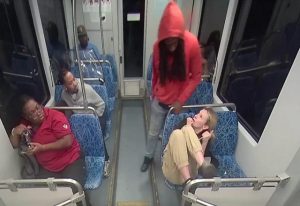Question 1: Yes or No?
November 5, 2018
For awhile eighteen was just a number for me, a mark of adulthood that stood conspicuously on my driver’s license. But when my family sang “Happy Birthday” to me on that day that I legally became an ‘adult’, I realized the responsibility it held. I can vote! I can use my voice and my individual opinions to make a difference in society.
So I figured I should grasp this opportunity and research the intricate details of this year’s three famous questions Massachusetts is asking. All three propositions hold immense weight in their prosper for change in our state, but there is one question that stood out to me as I was reading articles and rapidly changing statistics, and that was Question 1.
This ballot question deals with hospitals, specifically nurses, whereas it hopes to limit the number of patients a nurse can cover. If this law were to pass, nurses would be limited to caring for a maximum of four patients. Now, usually, from my little experience in understanding and being a part of political debates and polls, there is one of two sides that tends to portray better morals. It is easy to see where most will benefit or suffer; simpler to decide which word you will circle when the vote is to be cast. But, for this question, I have been struggling to see where I stand. Morality appears to be prevalent on both sides.
If one says yes to question one, there are immense benefits to the patient and the nurse. With a limit to the number of people they can aid, they can focus that care on those specific patients, when rather, if they were running around to ten different patients, the ultimate care to each could not be given. Nurses could get careless or rushed and make mistakes. No one wants sickness to prevail over health because of lost time and outnumbered staff.
With that all said, it seems easy to say yes to question one. But, saying no has its strengths as well. While limiting the patient to nurse ratio will help those few patients, many more people who are injured and sick may be sent away, or not get the care they need. Waiting times in hospitals will soar because there will not be enough staff to care for everyone at once.
In addition, every day at the job is different; nurses could be running around and have ten patients one day, and the next day have two patients who don’t take up much of their time; saying yes is not applicable to all scenarios. The hospital should be able to create their own rules to fit the schedule that they face from day to day. Each hospital is different, and can regulate a limit or no limit depending on what works best for them.
As you can see, it is difficult to choose which side to take on this issue. We want maximum care for the sick, but we don’t want anyone left unaided. As I was deciding where I would stand on this bill, costs began to sway me even more when I saw the numbers.
If a nurse were to violate the limits of this bill (if it were passed), the hospital could be fined up to $25,000, all for caring for an extra patient! In addition, many cuts would have to be made in order to fit the laws of Question 1. According to an article in The Boston Globe, the Boston Medical Center estimated that, if passed, “the question would result in up to 62 medical-surgery bed closures, 800 fewer childbirths at the hospital each year, and a decrease in the daily capacity of the emergency department of more than 100 patients.”
The total costs are the main problem for most indecisive voters; hospitals would have to hire new nurses, buy more equipment, and overall prepare to change all of its ways. An article on WGBH shows the different costs workups by opposing and advocating parties for the bill. Those voting yes for Question 1 have come to the conclusion that this law would cost around $47 million a year, while the opponents’ estimate was through the roof, measuring that in the first year, it would cost a whopping $1.3 billion, and $900 million the year after that.
WGBH additionally reported an unbiased individual study done by The Massachusetts Health Policy Commission, saying it could cost “between $676 million and $949 million annually.” They came to this total mostly because of the thousands of nurses hospitals would have to hire. Furthermore, this commission “warned that this cost could hurt hospitals’ margins and could lead to a closure in unprofitable units and a reduction in hospitals’ non-healthcare workforce.”
But on the ‘yes’ side of things, there are some benefits cost-wise. Less patients means shorter hospital stays. The HPC says these effects could save the state $34 to $47 million. But that is still not enough to make up for the enormous costs of implementing the law in the first place.
Overall, I have come to agree with the opposing views on this bill; saying yes would mean high costs, strict regulations, and longer wait times, while saying no would allow for hospitals to make their own rules, less of increase in yearly costs, and overall care for more patients.
Although those against the bill have their points of contradiction, those advocating for it have strong reasons as well. So I encourage everyone to decide for themselves what they believe, and if they are of age, to go out and vote as soon as they can, because even one vote can provoke change.
Sources:
- https://www.wgbh.org/news/local-news/2018/10/03/independent-agency-says-ballot-question-1-could-cost-676-949-million-annually
- https://boston.cbslocal.com/2018/10/03/question-1-limit-patients-doctor-ballot-massachusetts/
- https://www.boston.com/news/politics/2018/10/09/massachusetts-ballot-questions-2018-question-1-nurse-staffing






